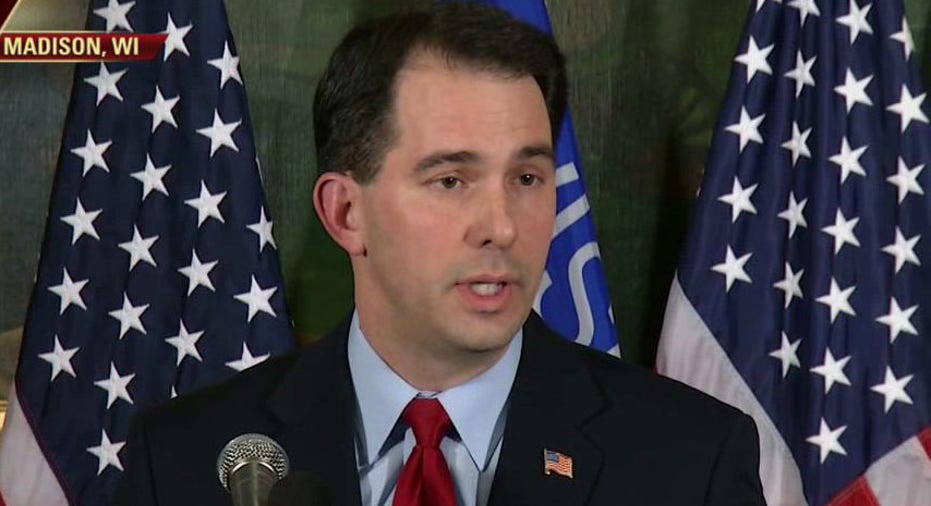Walker: 'Our Bills Are Due'

Wisconsin Gov. Scott Walker on Monday urged 14 Democratic state senators who left the state rather than vote on a bill that takes away bargaining rights for state workers to return to work, but warned a massive budget deficit left no room to negotiate.
Senate Democrats who left Wisconsin last week said Walker needed to be open to compromise as thousands of demonstrators gathered in the capitol building and on the snow-covered lawns of the grounds as a second week of protests continued.
"They've got to come to Wisconsin, do the job that they were elected to do, do the job that they're paid to do," Walker said in an interview on ABC's "Good Morning America."
"If they want to do that, we will sit down and talk to them. But the bottom line is we can't negotiate over a budget because we are broke and we need the money," said Walker, referring to a projected $3.6 billion deficit over the next few years.
Walker, who took office in January, plans a news conference later on Monday. Senate Republicans expect to resume regular business on Tuesday with or without the Democratic senators.
"Just because they don't want to participate, you can't shut down the people's work," state Senate Majority Leader Scott Fitzgerald said on Monday.
Fitzgerald's party holds a 19-14 majority but needs a quorum of 20 to vote on spending bills. Other bills require only a quorum of 17 members.
The Democratic senators left the state to deny the Wisconsin state Senate the quorum needed to consider a proposal to reduce public employee union bargaining power.
Wisconsin Democratic senate minority leader Mark Miller said on Monday that public employees had agreed to economic concessions and Walker needed to be open to compromise.
"The governor has not done anything except insist that it has to be his way, all or nothing," Miller said in an interview on CBS' "The Early Show." "The governor needs to recognize that this is a democracy and in a democracy you negotiate."
'NERVES ARE RAW'
Jay Heck, executive director of Common Cause in Wisconsin, a nonpartisan advocacy group, said that while the Democrats won't want to stay away for too long, there's nothing the Republicans can do to compel them to come back if Walker is unwilling to negotiate.
"There doesn't seem to be a lot of pressure from the districts for the senators to come back," Heck said.
Heck said this is the most polarizing event he has seen in Wisconsin since the 1995 debates over a new stadium for the Milwaukee Brewers baseball team.
Wisconsin has become the flashpoint for a U.S. struggle over efforts to roll back pay, benefits and bargaining rights of government workers. If the majority Republicans prevail, other states such as Ohio and Tennessee could be buoyed in efforts to take on the long-standing powerful unions.
Public sector workers in West Virginia rallied on Monday for better pay and working conditions and expressed support for Wisconsin teachers and public workers.
The Wisconsin State Assembly is due to take up the Walker proposals on Tuesday. Republicans have a large enough majority to quorum in the Assembly without the Democrats.
U.S. state and local governments are struggling to balance budgets after the recession decimated their finances. Other states like Texas, Arizona and Ohio are relying mainly on cuts in spending, while Minnesota and Illinois are raising taxes.
The changes sought by Walker in Wisconsin would make state workers contribute more to health insurance and pensions, end government collection of union dues, let workers opt out of unions and require unions to hold recertification votes every year.



















